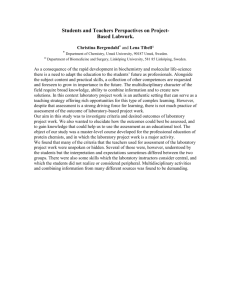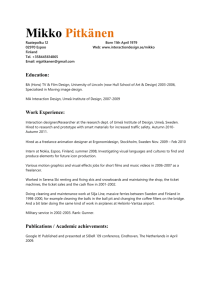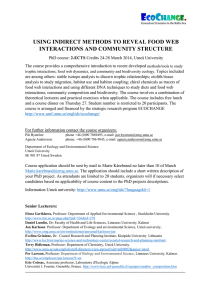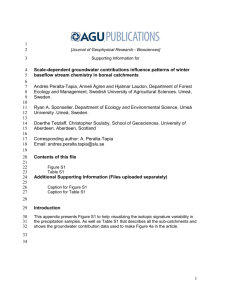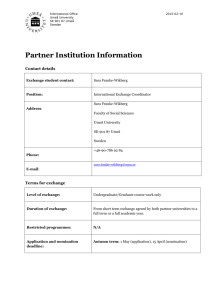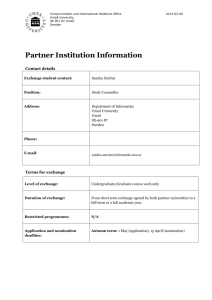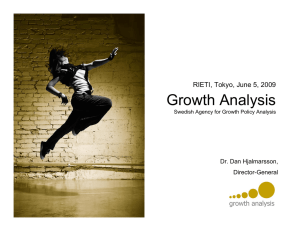Proceedings of Annual South Africa Business Research Conference
advertisement
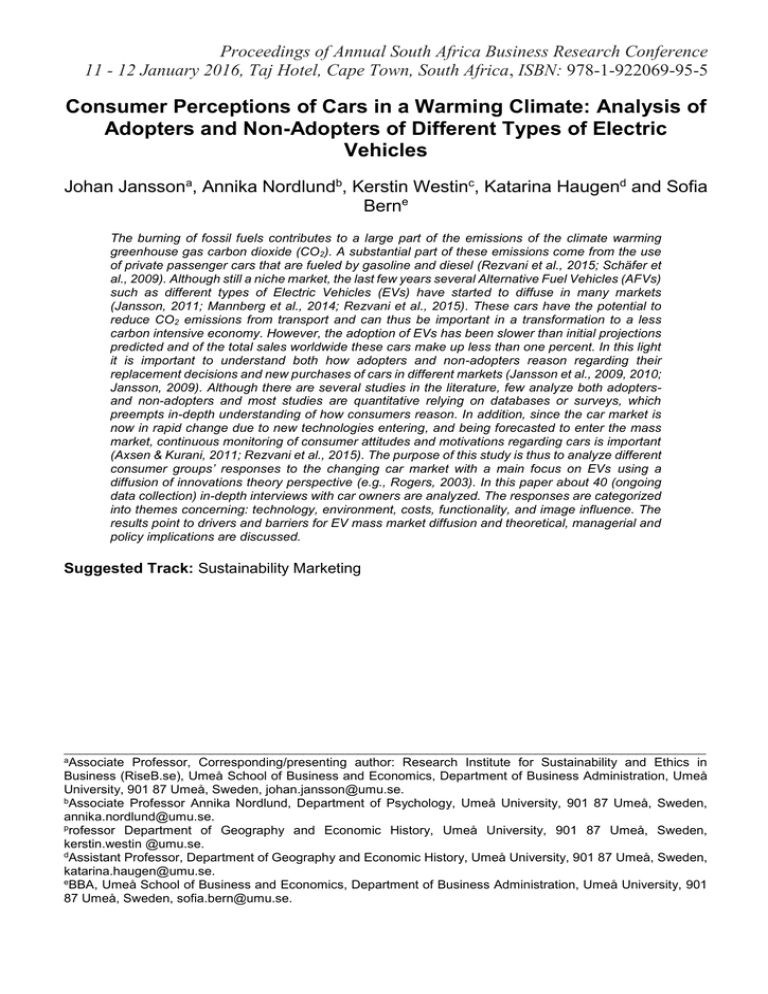
Proceedings of Annual South Africa Business Research Conference 11 - 12 January 2016, Taj Hotel, Cape Town, South Africa, ISBN: 978-1-922069-95-5 Consumer Perceptions of Cars in a Warming Climate: Analysis of Adopters and Non-Adopters of Different Types of Electric Vehicles Johan Janssona, Annika Nordlundb, Kerstin Westinc, Katarina Haugend and Sofia Berne The burning of fossil fuels contributes to a large part of the emissions of the climate warming greenhouse gas carbon dioxide (CO2). A substantial part of these emissions come from the use of private passenger cars that are fueled by gasoline and diesel (Rezvani et al., 2015; Schäfer et al., 2009). Although still a niche market, the last few years several Alternative Fuel Vehicles (AFVs) such as different types of Electric Vehicles (EVs) have started to diffuse in many markets (Jansson, 2011; Mannberg et al., 2014; Rezvani et al., 2015). These cars have the potential to reduce CO2 emissions from transport and can thus be important in a transformation to a less carbon intensive economy. However, the adoption of EVs has been slower than initial projections predicted and of the total sales worldwide these cars make up less than one percent. In this light it is important to understand both how adopters and non-adopters reason regarding their replacement decisions and new purchases of cars in different markets (Jansson et al., 2009, 2010; Jansson, 2009). Although there are several studies in the literature, few analyze both adoptersand non-adopters and most studies are quantitative relying on databases or surveys, which preempts in-depth understanding of how consumers reason. In addition, since the car market is now in rapid change due to new technologies entering, and being forecasted to enter the mass market, continuous monitoring of consumer attitudes and motivations regarding cars is important (Axsen & Kurani, 2011; Rezvani et al., 2015). The purpose of this study is thus to analyze different consumer groups’ responses to the changing car market with a main focus on EVs using a diffusion of innovations theory perspective (e.g., Rogers, 2003). In this paper about 40 (ongoing data collection) in-depth interviews with car owners are analyzed. The responses are categorized into themes concerning: technology, environment, costs, functionality, and image influence. The results point to drivers and barriers for EV mass market diffusion and theoretical, managerial and policy implications are discussed. Suggested Track: Sustainability Marketing ___________________________________________________________________________________ aAssociate Professor, Corresponding/presenting author: Research Institute for Sustainability and Ethics in Business (RiseB.se), Umeå School of Business and Economics, Department of Business Administration, Umeå University, 901 87 Umeå, Sweden, johan.jansson@umu.se. bAssociate Professor Annika Nordlund, Department of Psychology, Umeå University, 901 87 Umeå, Sweden, annika.nordlund@umu.se. professor Department of Geography and Economic History, Umeå University, 901 87 Umeå, Sweden, kerstin.westin @umu.se. dAssistant Professor, Department of Geography and Economic History, Umeå University, 901 87 Umeå, Sweden, katarina.haugen@umu.se. eBBA, Umeå School of Business and Economics, Department of Business Administration, Umeå University, 901 87 Umeå, Sweden, sofia.bern@umu.se.
